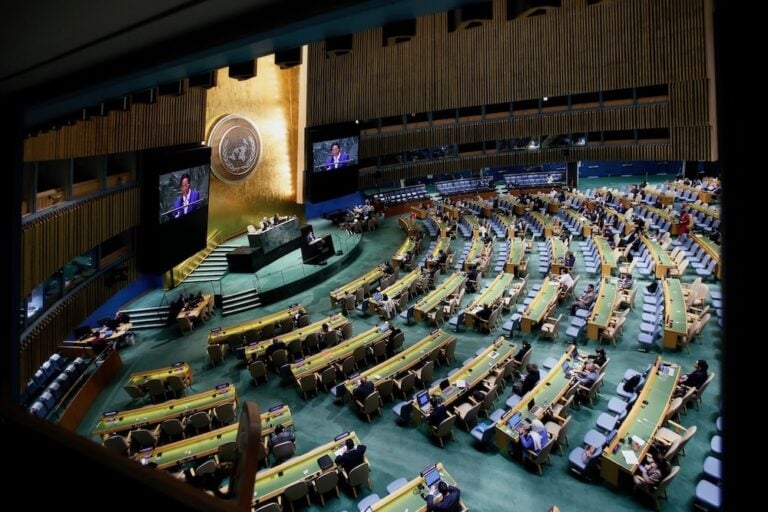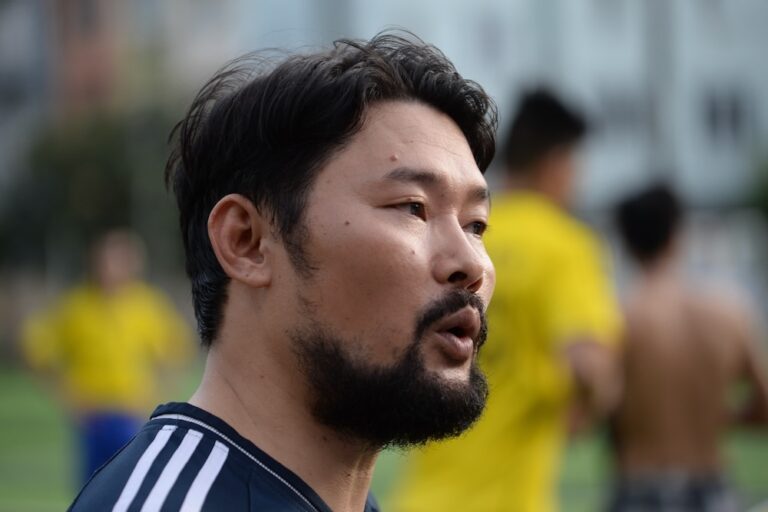(HRW/IFEX) – The following is a Human Rights Watch press release: VIETNAM: SILENCING OF DISSENT (New York, May 3, 2000) – Human Rights Watch said today that Vietnam’s human rights performance continues to fall far short of international standards, despite economic and social changes since the late 1980’s. In a new 34-page report, “Vietnam: Silencing […]
(HRW/IFEX) – The following is a Human Rights Watch press release:
VIETNAM: SILENCING OF DISSENT
(New York, May 3, 2000) – Human Rights Watch said today that Vietnam’s human rights performance continues to fall far short of international standards, despite economic and social changes since the late 1980’s.
In a new 34-page report, “Vietnam: Silencing of Dissent,” Human Rights Watch details how the Socialist Republic of Vietnam continues to harass, isolate, place under house arrest, and sometimes imprison its critics. Among those singled out are senior party leaders calling for political reforms, long-time critics from the academic community, members of the press, and religious leaders whom the government fears may be able to attract large followings.
“The twenty-fifth anniversary of the country’s reunification offers an important opportunity for the Vietnamese government to reaffirm its commitment to human rights, and its U.N. treaty obligations,” said Mike Jendrzejczyk, Washington Director of the Asia Division of Human Rights Watch. “We welcome the April 30 prisoner release and hope that it includes all those who have been imprisoned for peaceful expression of their political and religious views. Vietnam should also take other steps to promote transparency and respect for basic rights and the rule of law.”
The new report takes note of positive changes in Vietnam in recent years as it has opened up to the international community, including human rights improvements. Tens of thousands of political detainees and re-education camp inmates have been released, thousands of Vietnamese who had fled abroad as refugees have returned, and the government has shown an increased willingness to cooperate with the U.N. on human rights issues.
At the same time, significant human rights problems remain. Freedom of expression, free association, and other basic rights are still seriously constrained. Corruption purges have been used, in part, to target party leaders advocating economic reforms while hardline conservatives appear virtually unaccountable. Vietnam’s domestic media remains under strict state control. Critics have few sanctioned outlets for independent expression. Communication among dissidents and between them and the outside world is hampered by interception of mail, blockage of telephone lines, and suspension of Internet accounts. When dissidents do speak out in criticism of the Party or call for democratic reforms, they are subject to interrogation by officials and heightened monitoring of their activities.
“Dissidents of all kinds are less frequently imprisoned than in the past,” said Jendrzejczyk. “Instead they are subjected to less overt forms of harassment and intimidation, including surveillance and restriction of their freedom of movement or their ability to work. But the threat of imprisonment remains real for those who publicly challenge the Party’s authority. The Party leadership retains a decidedly anachronistic emphasis on suppressing its public critics.”
In a response to an advance copy of the report, the Vietnamese Embassy in Washington, D.C. said the report was “biased,” and then noted: “I want to confirm to you that there is no violation of freedoms of speech, press, expression or ‘silencing of dissent’…in Vietnam as mentioned in your report. You know very well that in Vietnam, as in many other countries, everyone has the same legal and constitutional rights and duties and transgressors are all prosecuted according to the law.” (The complete text of the embassy’s response is available on request.)
However, Human Rights Watch notes in its report that the government continues to use existing laws, and to pass new ones, which contravene international human rights norms and the standards laid down in the International Covenant on Civil and Political Rights, to which Vietnam became a state party in 1982.
Legislation remains in force authorizing surveillance of released prisoners convicted of national security offenses and the arbitrary “administrative detention” of anyone suspected of threatening national security, with no need for prior judicial approval. A new press law passed in May 1999 effectively encourages media self-censorship by requiring journalists to pay compensation or publish retractions not only for inaccurate stories but for any writing deemed to violate the “honor of any organization or the dignity of any individual.”
An appendix to Human Rights Watch’s report provides a partial listing of individuals thought to be imprisoned as of April 29, 2000 for peaceful expression of their religious or political beliefs.
Because of lack of access to Vietnam’s prisons by independent monitors, it is not possible to provide a comprehensive listing of all individuals currently imprisoned or detained in Vietnam for political or religious beliefs. The government continues to insist it has no political prisoners, although the director of the Public Security Ministry’s Prison Management Department stated recently that the inmate population included more than 100 people convicted of crimes against national security alone. Human Rights Watch’s list of forty-eight individuals provides a sampling of representative cases obtained by the rights organization.
“We urge the Vietnamese government to promptly make public the names of all of those released in the prisoner amnesty, where they were held, and under what charges,” said Jendrzejczyk.
In the report, Human Rights Watch urges the government to release unconditionally all those currently being imprisoned, detained or whose activities are restricted because of their peaceful exercise of their rights to freedom of expression or belief. The international monitoring group further calls on Vietnam to take other steps necessary to bring Vietnam’s law and practice into full conformity with its international human rights obligations. Human Rights Watch also encourages the international community to support such reforms, advocating that technical assistance for legal reform programs from bilateral donors and the World Bank include reforms of criminal, press and national security laws, and not only laws dealing with commercial matters.
Vietnam: Silencing of Dissent is available online at: http://www.hrw.org/reports/2000/vietnam/


